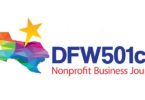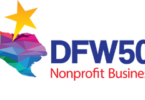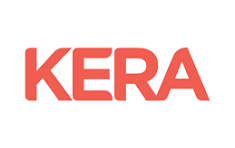Hi, I’m Alex Dunn, the Millionaire Grant Lady. I have 15 years of grant writing experience and over $103 million in awards under my belt. I offer advice, tips, tricks and opportunities to the DFW501c.news audience each week.
Resident Opportunity and Self-Sufficiency Service Coordinator Program
- Expected number of awards: 114
- Cost sharing required? Yes
- Closing date: December 2, 2025
- Award range: Up to $816,750
- Eligible applicants: Nonprofits, housing authorities, tribal governments, resident associations.
- Summary: The Resident Opportunity and Self Sufficiency Service Coordinator (ROSS-SC) program is designed to assist residents of Public and Indian Housing make progress towards economic and housing self-sufficiency by addressing the educational, professional and health barriers they face. Self-sufficiency is defined as an individual’s ability to support their household by maintaining financial, housing, and personal/family stability. To achieve self-sufficiency, an individual moves along a continuum towards economic independence and stability; such movement is facilitated by the achievement of individual educational, professional, and health-related goals. To help residents make progress towards self-sufficiency, HUD provides ROSS-SC grant funding to eligible applicants to hire a Service Coordinator who assesses the needs of Public and Indian housing residents and links them to local training and supportive services that will enable participants to move along the self-sufficiency continuum. In the case of elderly/residents with disabilities, the Service Coordinator also links them to congregate and other supportive services which enable them to age/remain in place in addition to providing other desired training and supportive services which are made available to other residents. In addition, with the ROSS-SC grant, HUD provides funding for grantees to provide direct services to further support the work of the ROSS-SC and ultimately, the goals of the ROSS program.
Link to full RFP: https://www.grants.gov/search-results-detail/360662
Drug-Free Communities (DFC) Support Program – NEW (Year 1)
- Funder: Department of Health and Human Services
- Expected number of awards: 50
- Cost sharing required? Yes
- Due date: April 14, 2026
- Award ceiling: $125,000
- Eligible applicants: Nonprofits, tribal organizations, school districts, institutions of higher education, and city, county, state, and special district governments
- Summary: The Drug-Free Communities (DFC) Support Program was created by the Drug-Free Communities Act of 1997 (Public Law 105-20). The Executive Office of the President, Office of National Drug Control Policy (ONDCP), and the Department of Health and Human Services (HHS), Centers for Disease Control and Prevention (CDC), National Center for Injury Prevention and Control (NCIPC) are accepting applications for Fiscal Year (FY) 2026 Drug-Free Communities (DFC) Support Program grants. The purpose of the DFC Support Program is to establish and strengthen collaboration to support the efforts of community coalitions working to prevent youth substance use. By statute, the DFC Support Program has two goals: 1) Establish and strengthen collaboration among communities, public and private non-profit agencies, as well as federal, state, local, and tribal governments to support the efforts of community coalitions working to prevent and reduce substance abuse among youth (individuals 18 years of age and younger). 2) Reduce substance abuse among youth and, over time, reduce substance abuse among adults by addressing the factors in a community that increase the risk of substance abuse and promoting the factors that minimize the risk of substance abuse.
Link to full RFP: https://www.grants.gov/search-results-detail/360218










